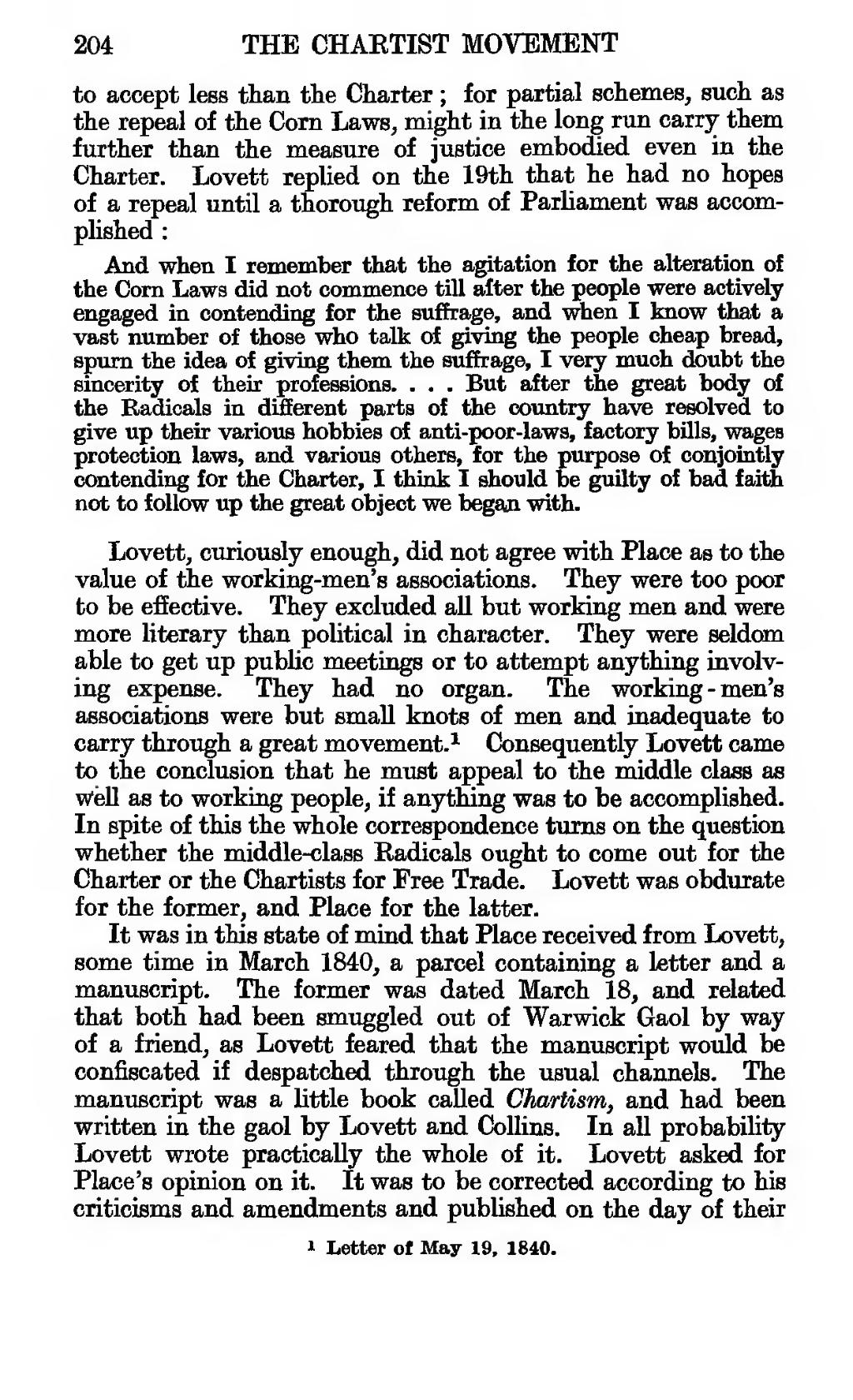to accept less than the Charter; for partial schemes, such as the repeal of the Corn Laws, might in the long run carry them further than the measure of justice embodied even in the Charter. Lovett replied on the 19th that he had no hopes of a repeal until a thorough reform of Parliament was accomplished:
And when I remember that the agitation for the alteration of the Corn Laws did not commence till after the people were actively engaged in contending for the suffrage, and when I know that a vast number of those who talk of giving the people cheap bread, spurn the idea of giving them the suffrage, I very much doubt the sincerity of their professions. … But after the great body of the Radicals in different parts of the country have resolved to give up their various hobbies of anti-poor-laws, factory bills, wages protection laws, and various others, for the purpose of conjointly contending for the Charter, I think I should be guilty of bad faith not to follow up the great object we began with.
Lovett, curiously enough, did not agree with Place as to the value of the working-men's associations. They were too poor to be effective. They excluded all but working men and were more literary than political in character. They were seldom able to get up public meetings or to attempt anything involving expense. They had no organ. The working-men's associations were but small knots of men and inadequate to carry through a great movement.[1] Consequently Lovett came to the conclusion that he must appeal to the middle class as well as to working people, if anything was to be accomplished. In spite of this the whole correspondence turns on the question whether the middle-class Radicals ought to come out for the Charter or the Chartists for Free Trade. Lovett was obdurate for the former, and Place for the latter.
It was in this state of mind that Place received from Lovett, some time in March 1840, a parcel containing a letter and a manuscript. The former was dated March 18, and related that both had been smuggled out of Warwick Gaol by way of a friend, as Lovett feared that the manuscript would be confiscated if despatched through the usual channels. The manuscript was a little book called Chartism, and had been written in the gaol by Lovett and Collins. In all probability Lovett wrote practically the whole of it. Lovett asked for Place's opinion on it. It was to be corrected according to his criticisms and amendments and published on the day of their
- ↑ Letter of May 19, 1840.
